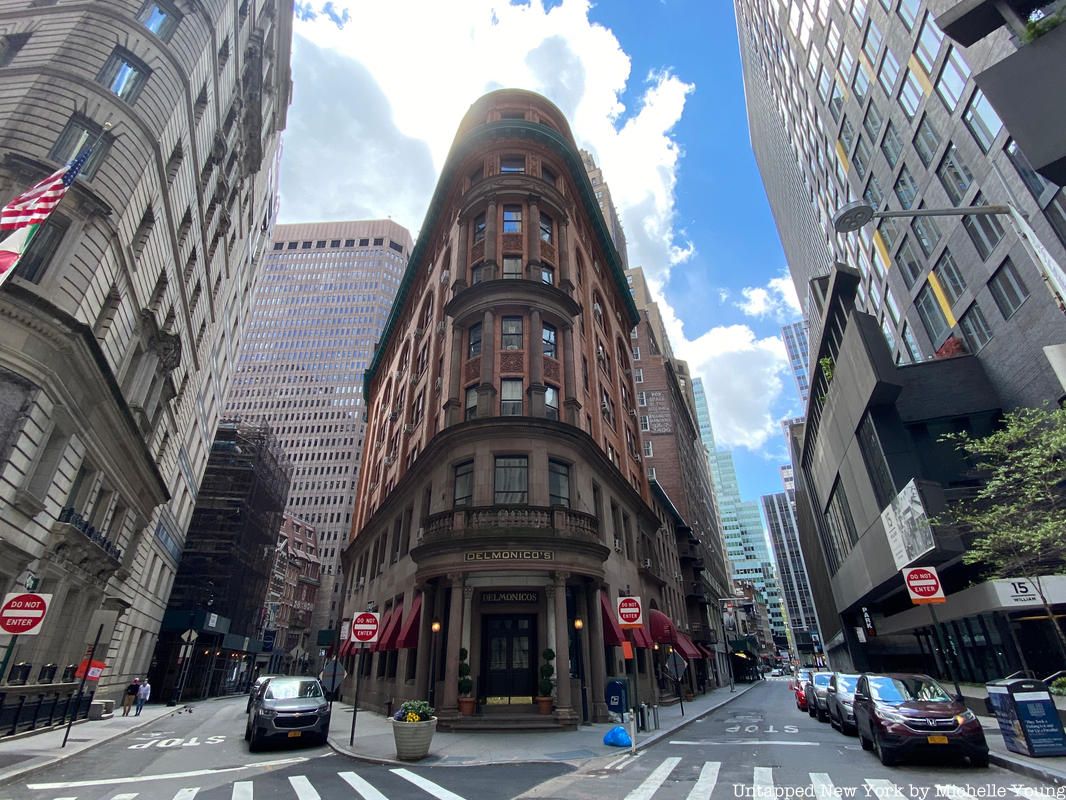

At the corner of Broadway and Wall Street is a hidden gem. Art aficionados might be aware that a floor to ceiling mosaic room exists inside One Wall Street, but it has been closed off to the public for decades. That is soon going to change when the transformation of One Wall Street, the 52-story former Irving Trust Company skyscraper is complete. Visitors to the staged apartments can already see this famous “Red Room” which is being used as the sales gallery.
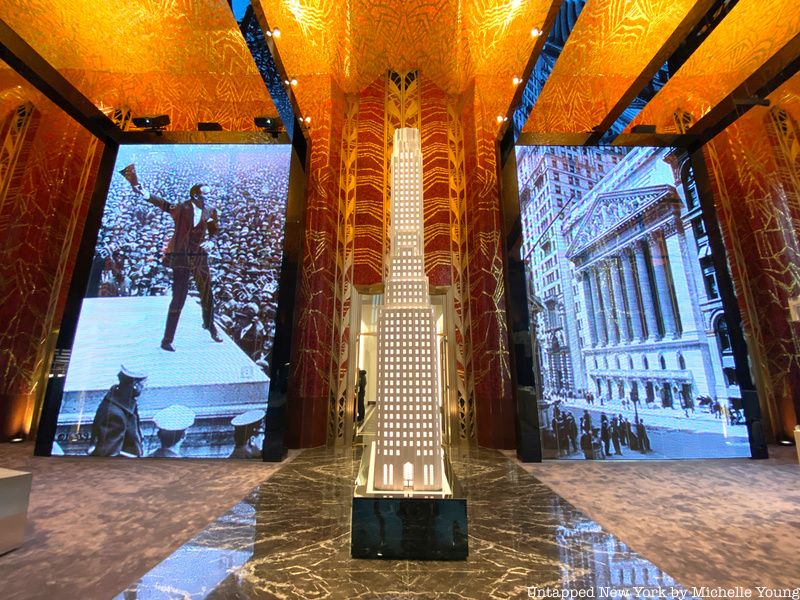
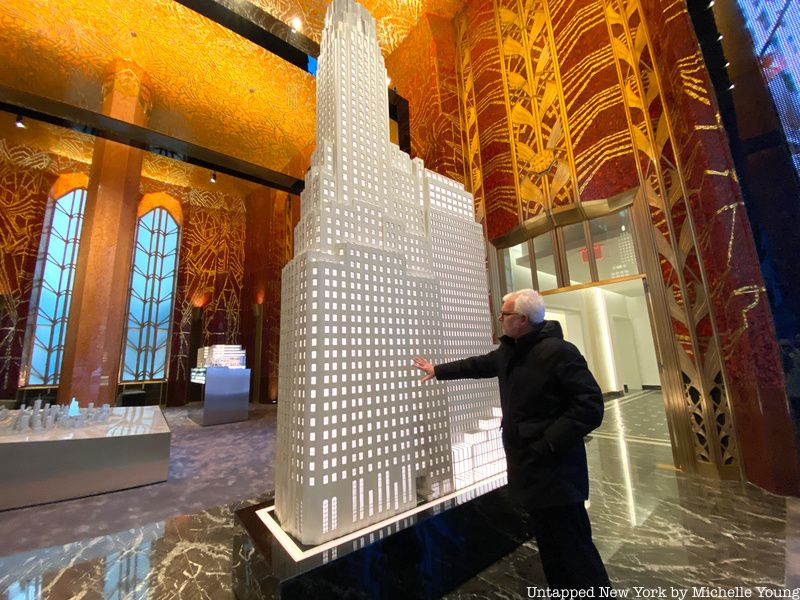
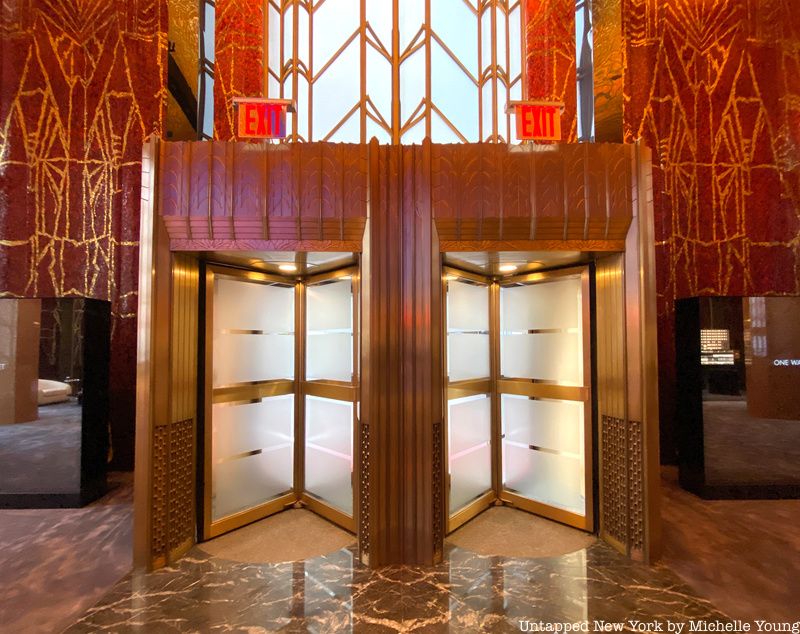
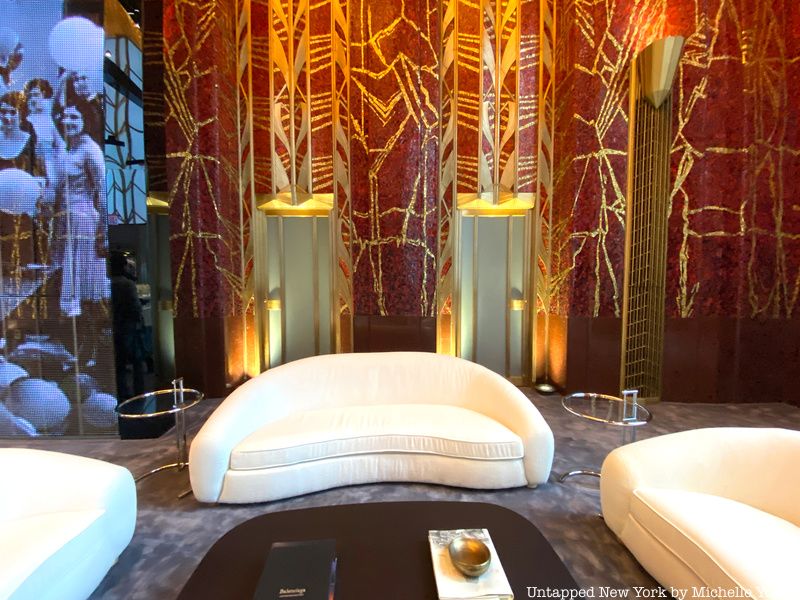
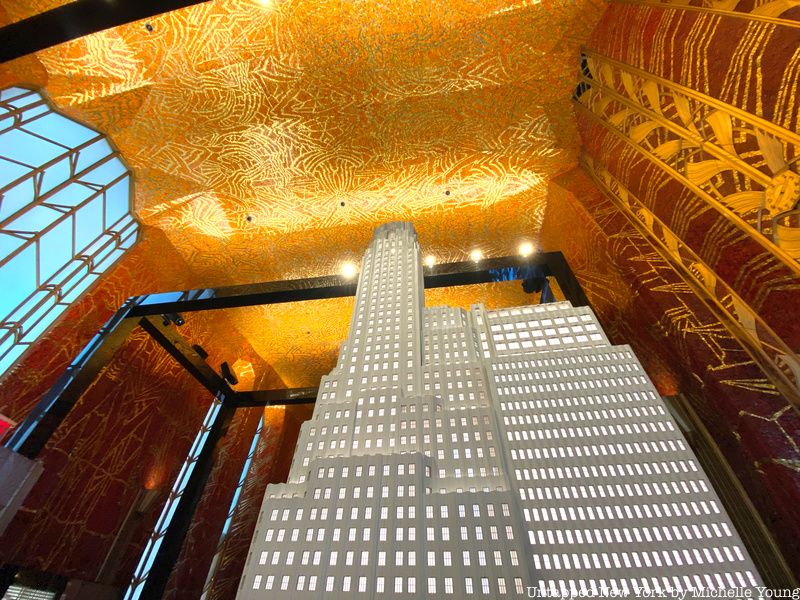
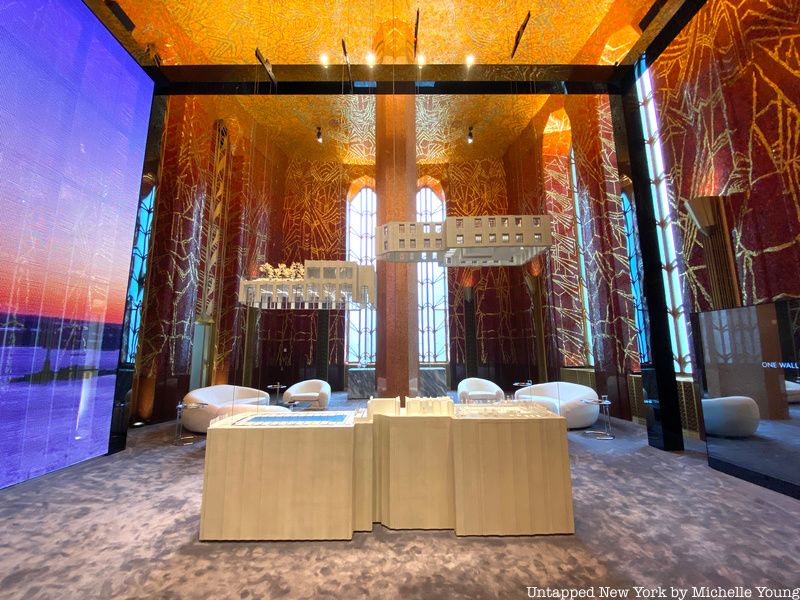
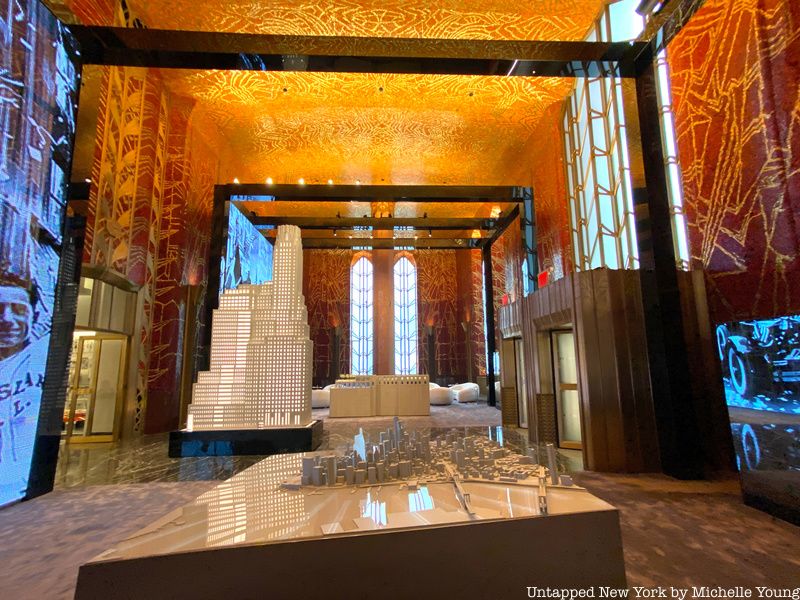
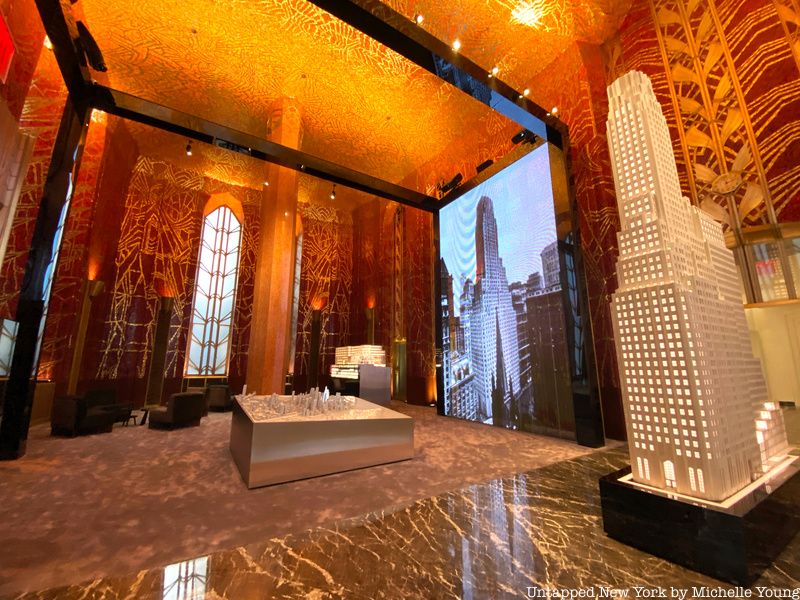
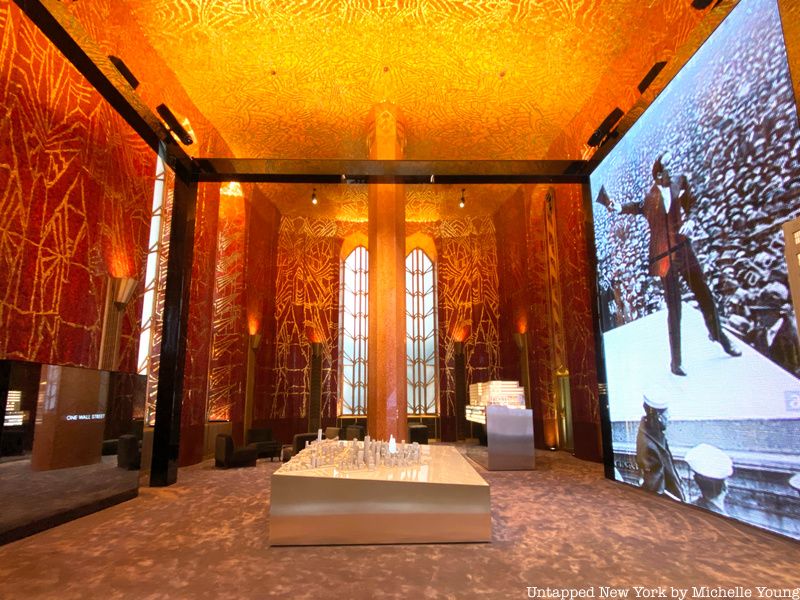
The dazzling array of red and gold mosaics inside the Red Room, the former banking room of the building, are by the famous Art Deco artist Hildreth Meière. Her works can be found all over the United States and elsewhere in New York City at Radio City Music Hall, Temple Emanu-El and St. Bartholomew’s Episcopal Church. The tiling was pre-fabricated in pieces in Germany, each stamped so that the installers, the Ravenna Mosaic Company, could put it all together. The Ravenna Mosaic Company also installed the mosaics in Rockefeller Center and Meière’s design in the Basilica Cathedral in St. Louis. The Red Room was a private banking hall for the wealthiest of clients, and was never intended to be the lobby of the building. Inside there were desks with matching lamps for the bankers and chairs for clientele. It is one of the only abstract mosaics by Meière, and thus all the more rare.
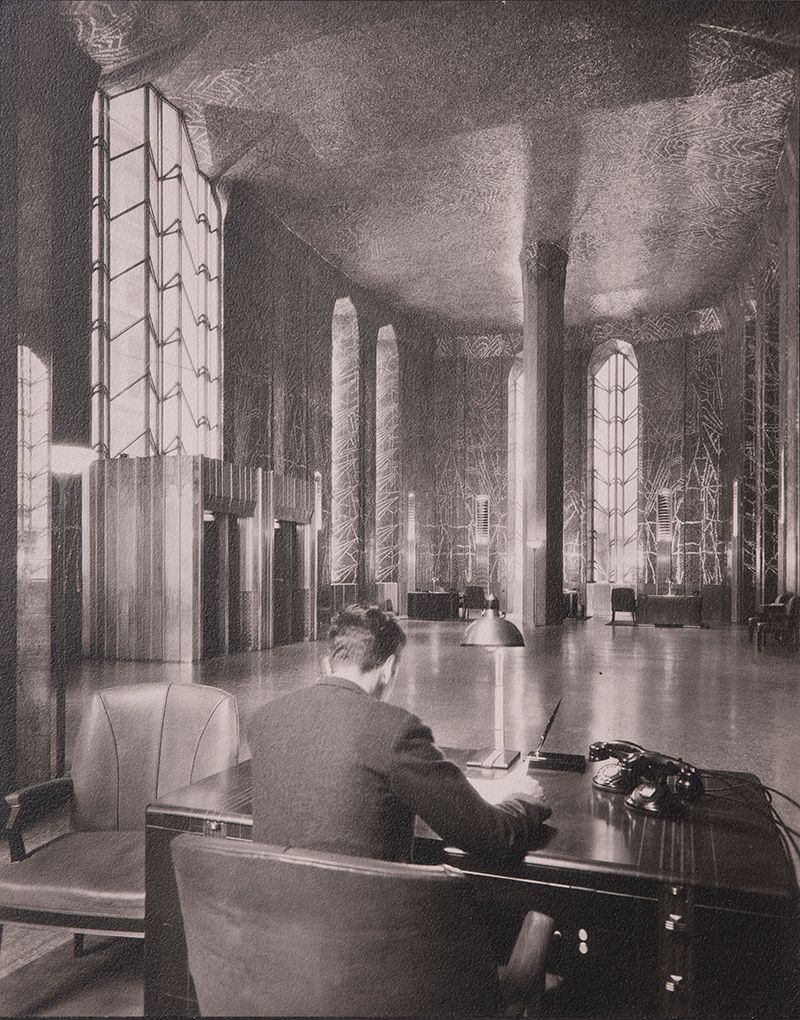
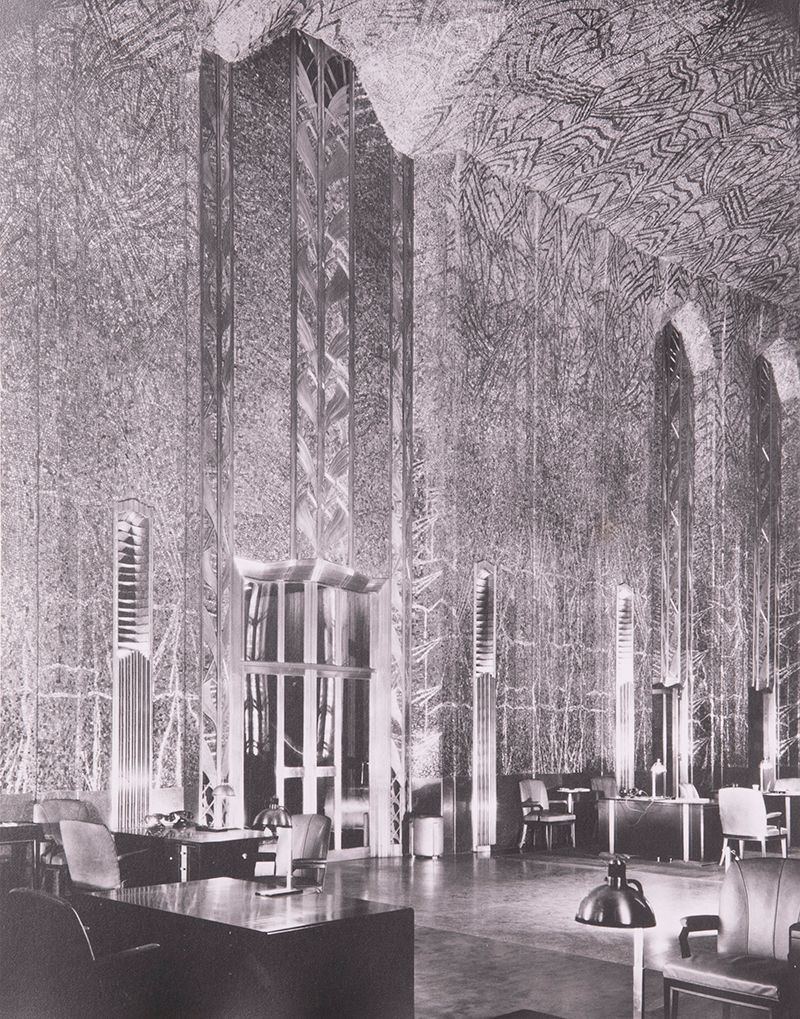
Meière created additional mosaics in the main lobby of One Wall Street, but they were already removed before Macklowe Properties purchased the building in 2014. Macklowe has recreated the entrance along Broadway using architect Ralph Walker’s original drawings and added a new canopy which was approved by the New York City Landmarks Commission but not part of Walker’s original design.
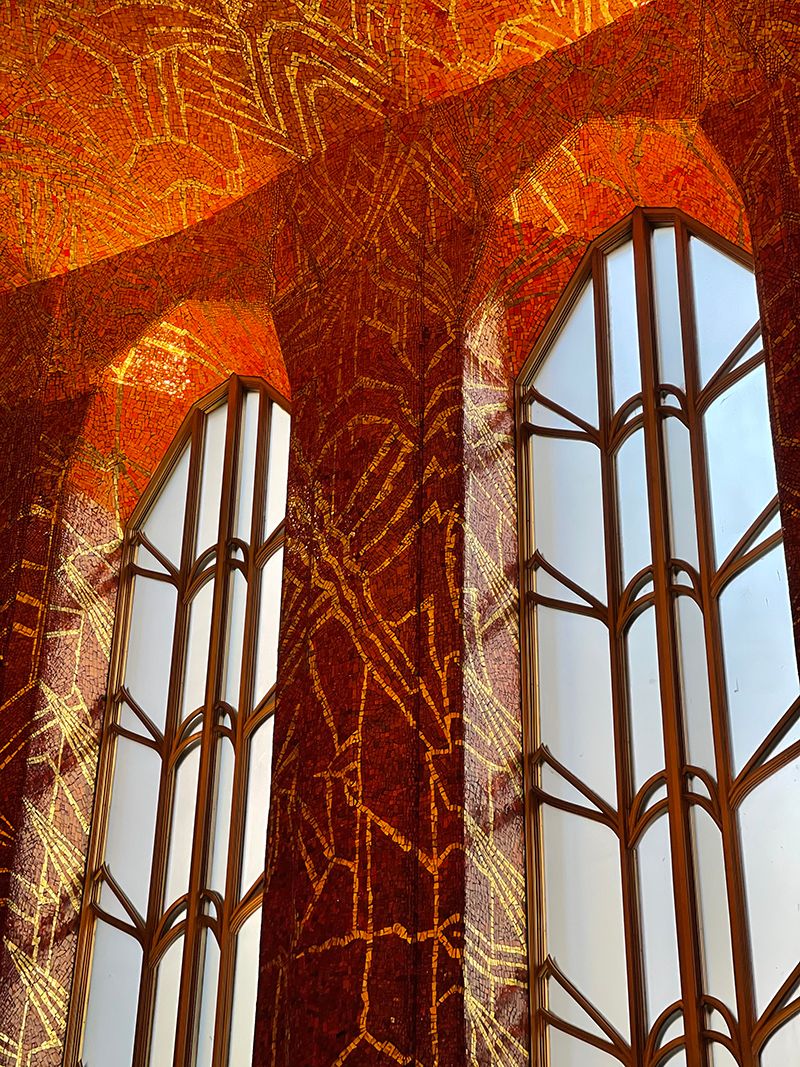
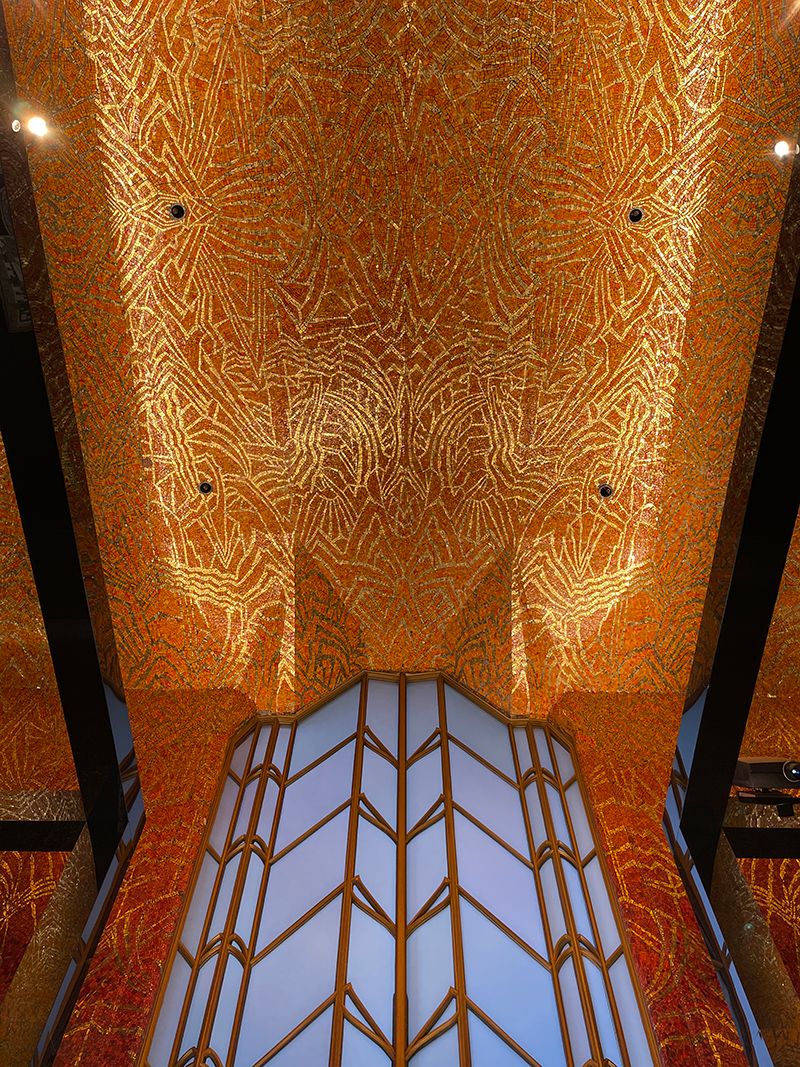
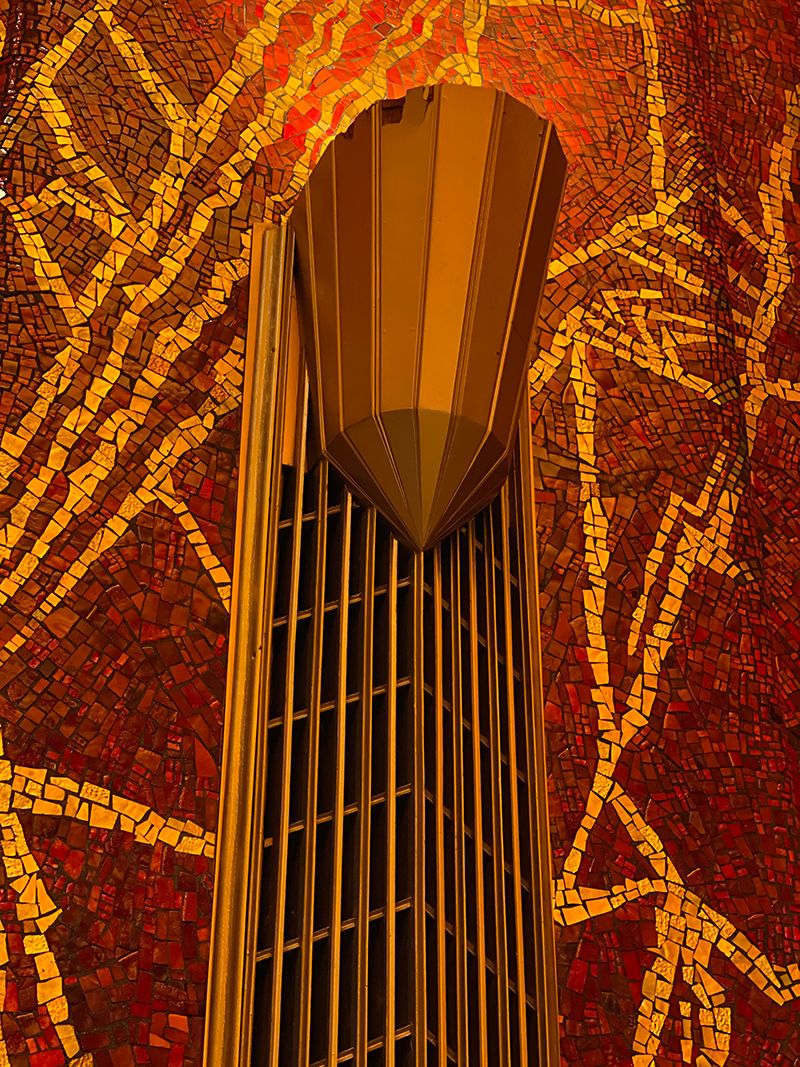
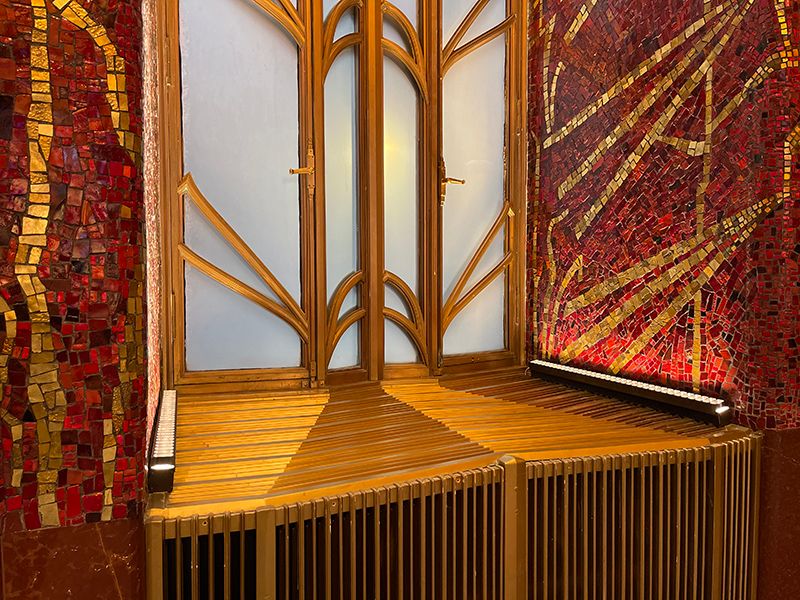
The interior of One Wall Street is not landmarked, but Macklowe put in a little over a million dollars in the restoration of the Red Room alone, mostly in cleaning and repair. “It wasn’t in terrible condition, it just needed some TLC and we had to bring it up to code with sprinklers, lighting, things like that.” says Richard Dubrow, Properties Director at Macklowe Properties. Nothing was modified or attached to the original walls. The plan is for the room to eventually become a retail space.

The Irving Trust Company was looking to make its mark when it moved from the Woolworth Building to One Wall Street. According to Dubrow, Irving Trust “bought the most expensive piece of real estate in Manhattan, here on the corner of Wall and Broadway. In the ’20s, the closer you were to the New York Stock Exchange, the more prestigious you were. So they are about thirty feet away from the stock. You can’t get any closer. They hired the most famous architect of the day, Ralph Walker.” Walker is also known for his other New York City masterpieces 100 Barclay (the former New York Telephone Building), Stella Tower and Walker Tower.

One Wall Street was so connected with Walker’s persona that he dressed as the building itself at the 1931 Society of Beaux-Arts Architects Ball. Dubrow says, Walker “was looking to celebrate the machine age with the design. Not so much the power of the machine but the precision of the machine” which is reflected on the relief sculptures and pattern of the limestone-clad facade of the building. The interiors of One Wall Street were treated with equal attention.
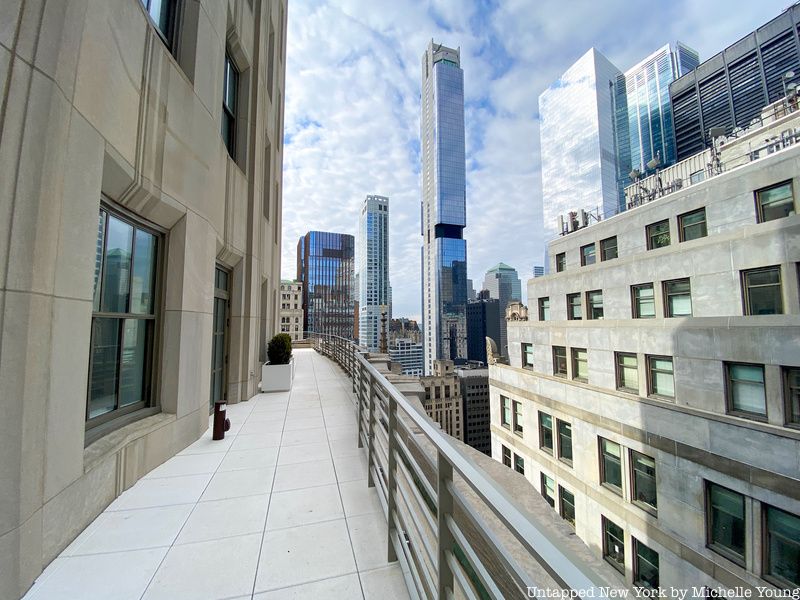
For the last few years, One Wall Street has been undergoing an epic reconstruction into a residential and commercial complex. In 2019, we showed you what the three-story penthouse looked like amidst renovation. Now, if you’re interested in purchasing one of the condos inside One Wall Street, you can also get a look at the Red Room and the Hildreth Meière mosaics that line the walls and ceiling.
Join us for an upcoming tour of the hidden gems of the Financial District where you’ll pass by One Wall Street!



